How Technology Improves Healthcare
Although progress in introducing the latest technologies has been slow, the health system is not left behind. This is due not only to the nature of the data but also to its medical regulations.
Nevertheless, healthcare has taken essential steps that have redefined the way patients are treated, the way doctors’ instruments are used and data collected, the way research is conducted, and the way innovative and new approaches are found.
The number of data sets [EHR] has increased, and according to electronichealthreporter.com, only 9 percent of these hospitals used ten decades for EHR, compared to 90 percent. Individuals have played an essential role in helping patients push for their well-being. This applies to all those patients with a disease like cancer who have to use complicated machines. Here are some of how health care has improved significantly.
Provides Better Medicine, Equipment, and Treatment
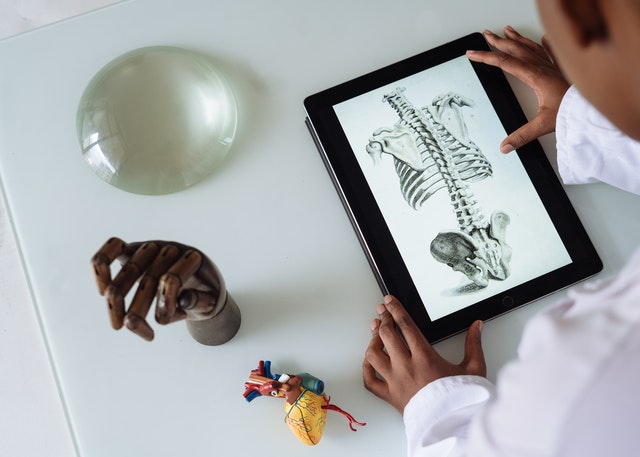
The best equipment has enabled doctors to provide more comprehensive care. It has allowed improving the quality of life of people suffering from diseases. Better medicine has freed an illness from the stress of recent years. Also, research was done because of the improved equipment. It has improved connectivity with doctors and researchers.
Technology has made it easier for doctors in different regions of the world to connect and exchange information. Some applications have been developed that allow doctors to have conversations, and the results could be initiated with them. This saves the time doctors spend; also, technology has enabled researchers to find answers on medical mysteries.
Improves Relationship with Patients

With the help of technology, doctors can find a person’s records. This gives them a person’s guidance. This allows the doctor to provide personalized treatment to the patient.
Recently, old patient records have been kept in warehouses or rooms, which has caused a lot of paperwork and made it difficult to find the documents. However, technology has made it possible to transcribe the records, making them available to the person and the doctor. As a result, the patient feels comfortable with the doctor because he knows his medical history.
Provides Faster Results
In the past, it took weeks or maybe months to get the test results. Hospitals and clinics offer web portals these days. This allows you to get results in hours or days.
This is an excellent move because it reduces the patient’s anxiety and gives you the answers you needed. Portals allow people to keep their records and accounts and provide them with the ability to keep track of medical problems and appointments.
Enables Mobile Healthcare Facilities
Healthcare institutions use social media to answer their questions, to maintain contact with people, to conduct awareness campaigns, and to reach the public. Many of these sites are advanced; they can facilitate conversations with doctors about medical issues or remind their patients.
As medical records [EHR] become more and more widely available, it is easy for companies to access them. How companies choose to use this information will depend on how they generate revenue.
Enables Disease and Health Software
This information enables professionals, users, and researchers to trace and retrieve information related to health care and disease control. The software plays an essential role in the use of loading and tracking procedures.
Helps Predict Outbreaks
Because most people search online for answers when they feel …
Read More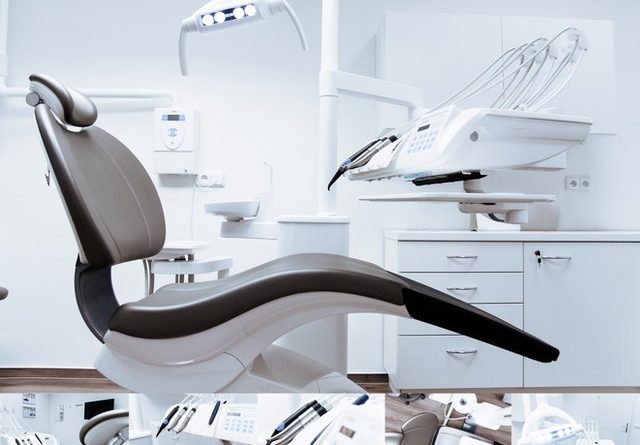

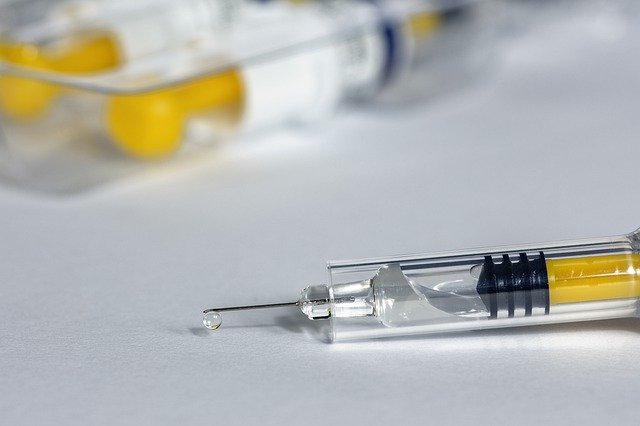


 If it is a walk that takes place outdoors, it may have a benefit for you. You can make sure that your memory and your attention span, and therefore your stamina, are improved, you’re out in the personality circle. With that, your capability to fight stress also enhances.
If it is a walk that takes place outdoors, it may have a benefit for you. You can make sure that your memory and your attention span, and therefore your stamina, are improved, you’re out in the personality circle. With that, your capability to fight stress also enhances. Walking in Groups Is Valuable
Walking in Groups Is Valuable

 I have already said that plants convert carbon dioxide into oxygen, and also how this has a positive effect on well-being by preventing air disorders. Also, plants help us to breathe and keep us alive.
I have already said that plants convert carbon dioxide into oxygen, and also how this has a positive effect on well-being by preventing air disorders. Also, plants help us to breathe and keep us alive. 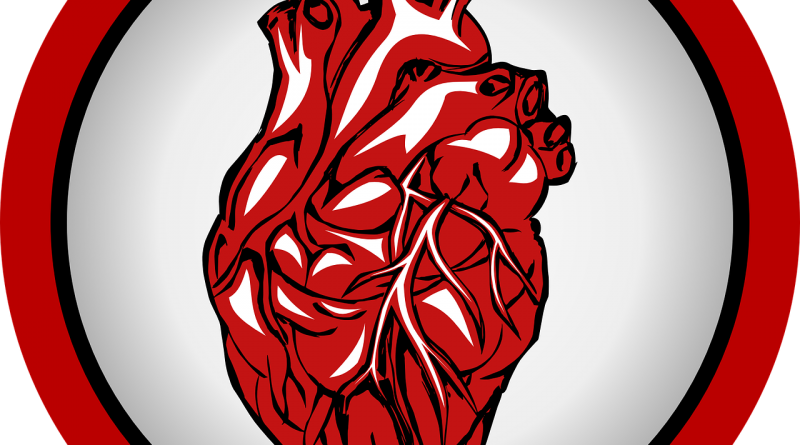

 Another exercise for the heart is strength training. It is the perfect exercise for anyone who wants to be fit and healthy—weight training is not only for your bones but also for your heart.
Another exercise for the heart is strength training. It is the perfect exercise for anyone who wants to be fit and healthy—weight training is not only for your bones but also for your heart. Yoga
Yoga

 The transmission of the virus can be transferred through droplets. When you sneeze or cough, it creates tiny droplets that can contain the virus. It can live in the air for several hours. So imagine if your standing close to an infected person and they sneeze, there is a big chance that you can inhale the virus in the air. So it’s advisable always to observe social distancing. Keep a distance of 2 meters for yourself and people sneezing or coughing.
The transmission of the virus can be transferred through droplets. When you sneeze or cough, it creates tiny droplets that can contain the virus. It can live in the air for several hours. So imagine if your standing close to an infected person and they sneeze, there is a big chance that you can inhale the virus in the air. So it’s advisable always to observe social distancing. Keep a distance of 2 meters for yourself and people sneezing or coughing. Door knobs, remote controls, car keys, mobile phones, computers, keyboards, and tables are part of it; therefore, you always need to maintain the cleanliness and make sure to disinfect those objects that you always put your hands on.
Door knobs, remote controls, car keys, mobile phones, computers, keyboards, and tables are part of it; therefore, you always need to maintain the cleanliness and make sure to disinfect those objects that you always put your hands on.

 Movement is the right way. You have to manage your mind to be able to exercise daily. At times you’ll see that it won’t appear on the scale until now. That doesn’t mean it’s not working right now. When you train, you build muscles. In doing so, you burn fat, which doesn’t seem very likely on the scale. But it still works.
Movement is the right way. You have to manage your mind to be able to exercise daily. At times you’ll see that it won’t appear on the scale until now. That doesn’t mean it’s not working right now. When you train, you build muscles. In doing so, you burn fat, which doesn’t seem very likely on the scale. But it still works.

 Research shows that people who incorporated fruits in their diet have a lower risk of having renal cell carcinoma, kidney cancer. Researchers examine each fruit and banana have a pronounced effect among the other grains because it contains phenolics, an antioxidant compound.
Research shows that people who incorporated fruits in their diet have a lower risk of having renal cell carcinoma, kidney cancer. Researchers examine each fruit and banana have a pronounced effect among the other grains because it contains phenolics, an antioxidant compound. In addition to strengthening bones and kidneys, bananas affect blood pressure. High blood pressure is one of the signs and risk factors for heart disease, the leading cause of death in adults in many countries. That’s why everyone wants to search for any element that can lower blood pressure. Studies have shown that eating a banana is an effective way to reduce the risk of having heart disease.
In addition to strengthening bones and kidneys, bananas affect blood pressure. High blood pressure is one of the signs and risk factors for heart disease, the leading cause of death in adults in many countries. That’s why everyone wants to search for any element that can lower blood pressure. Studies have shown that eating a banana is an effective way to reduce the risk of having heart disease.

 Fish are exceptionally flexible, which is the kind of flexibility you need to be prepared to grow inside your body. And how is that? The gift of the fish.
Fish are exceptionally flexible, which is the kind of flexibility you need to be prepared to grow inside your body. And how is that? The gift of the fish. Cobras are monsters. This position allows you to increase your strength by strengthening your back muscles and imitating their reptiles. Can you train this? Let me show you. Lie down with your thighs and press the mat with your belly and get down on the floor. Put your arms at your side, palms up, and stretch them out. It can count as an initial stage. Strengthen yourself with the energy of your back. Raise your mind, then your arms, chest, and finally, your thighs. Hold the pose for about ten minutes and then release it.
Cobras are monsters. This position allows you to increase your strength by strengthening your back muscles and imitating their reptiles. Can you train this? Let me show you. Lie down with your thighs and press the mat with your belly and get down on the floor. Put your arms at your side, palms up, and stretch them out. It can count as an initial stage. Strengthen yourself with the energy of your back. Raise your mind, then your arms, chest, and finally, your thighs. Hold the pose for about ten minutes and then release it. Strong muscles help to maintain the hips and play a significant role. Then lie down on the floor and do some curling. Attach the abdominal muscles by pulling the outside of the stomach. Note that you lift your shoulders and mind 2 centimeters earlier. Repeat the exercise for 10 minutes and then do three sets of results.
Strong muscles help to maintain the hips and play a significant role. Then lie down on the floor and do some curling. Attach the abdominal muscles by pulling the outside of the stomach. Note that you lift your shoulders and mind 2 centimeters earlier. Repeat the exercise for 10 minutes and then do three sets of results.

 The water dissolves waste products that are excreted by the kidneys. When water is lacking, the kidneys do not work. By increasing a single intake of water, it can reduce the pain. It is like a lubricant to back, and joint problems are affected if your body is insufficient of water. The use of the brain supports the blood supply. Water reduces the heat stress that everyone feels when migraines occur. Pregnant women, whenever they drink water, it is beneficial for them, especially for their unborn child.
The water dissolves waste products that are excreted by the kidneys. When water is lacking, the kidneys do not work. By increasing a single intake of water, it can reduce the pain. It is like a lubricant to back, and joint problems are affected if your body is insufficient of water. The use of the brain supports the blood supply. Water reduces the heat stress that everyone feels when migraines occur. Pregnant women, whenever they drink water, it is beneficial for them, especially for their unborn child.
 This is very important for everyone because it is essential for your health, and everyone has heard at some point in their lives. It is difficult for many people to do this, even though everyone understands that you have to eat healthy foods.If you are seriously interested in improving your well-being, you should eat healthy foods for yourself every day. Here are some foods that can be well integrated into your diet.
This is very important for everyone because it is essential for your health, and everyone has heard at some point in their lives. It is difficult for many people to do this, even though everyone understands that you have to eat healthy foods.If you are seriously interested in improving your well-being, you should eat healthy foods for yourself every day. Here are some foods that can be well integrated into your diet.
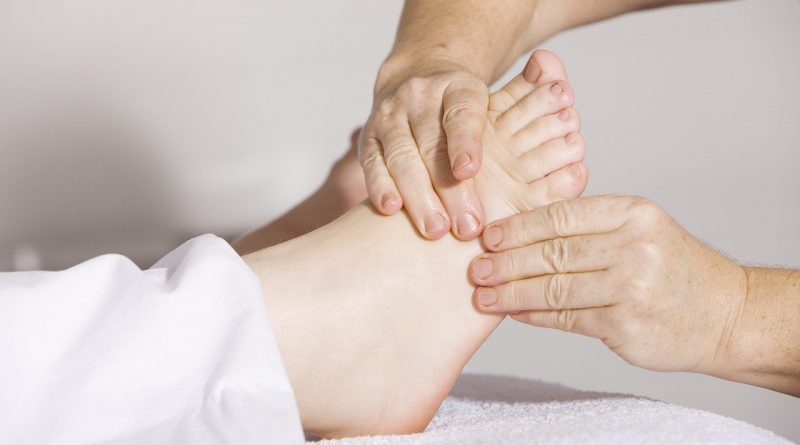

 Yes, varicose veins may be painful and frustrating, but there are ways to prevent it by positioning your leg to boost the blood flow. Try positioning your legs in your bed where it is higher than your pillow end. It can make a huge difference. A healthy weight can help the heart and veins to circulate correctly. If you are ready to maintain your weight that is a match for your height and body build, you won’t put extra strain on your veins. Scrub your thighs in the morning to help out your veins; this can assist flow.
Yes, varicose veins may be painful and frustrating, but there are ways to prevent it by positioning your leg to boost the blood flow. Try positioning your legs in your bed where it is higher than your pillow end. It can make a huge difference. A healthy weight can help the heart and veins to circulate correctly. If you are ready to maintain your weight that is a match for your height and body build, you won’t put extra strain on your veins. Scrub your thighs in the morning to help out your veins; this can assist flow.

 Poor alignment can reduce spinal mobility and can result in pain. Throughout the development of the core muscles, the back muscles begin to do the work together with the abdomen. Their ability to hold the spine is increased which also increases the spinal mobility.
Poor alignment can reduce spinal mobility and can result in pain. Throughout the development of the core muscles, the back muscles begin to do the work together with the abdomen. Their ability to hold the spine is increased which also increases the spinal mobility.
 Nothing compares to the taste of home-grown vegetables, fruits, and herbs, which are among the delights of having your own vegetable garden. Some of the fruits on the shelves of grocery stores are picked before they are fully ripe. They are sprayed with chemicals to retain their color – no wonder they sometimes taste disgusting! If you grow your own garden, you can have your personal choice of vegetables every day. Lettuce, pumpkin, radishes, onions, and tomatoes are some of the vegetables that are easy to grow. You can also grow herbs in your kitchen and pick some from the leaves when you need to mix it in your food.
Nothing compares to the taste of home-grown vegetables, fruits, and herbs, which are among the delights of having your own vegetable garden. Some of the fruits on the shelves of grocery stores are picked before they are fully ripe. They are sprayed with chemicals to retain their color – no wonder they sometimes taste disgusting! If you grow your own garden, you can have your personal choice of vegetables every day. Lettuce, pumpkin, radishes, onions, and tomatoes are some of the vegetables that are easy to grow. You can also grow herbs in your kitchen and pick some from the leaves when you need to mix it in your food.








 Blueberries are on nearly everybody’s list of superfoods — and for a good reason. They are one of the very antioxidant-rich foods in the world. Blueberries’ flavor means they elastic as they are great for you: consume them as a snack, or love day smoothies, with breakfast, or dinner sandwiches.
Blueberries are on nearly everybody’s list of superfoods — and for a good reason. They are one of the very antioxidant-rich foods in the world. Blueberries’ flavor means they elastic as they are great for you: consume them as a snack, or love day smoothies, with breakfast, or dinner sandwiches.

 Consider this fact. If you go to sleep and wake up at 7 a.m., you have gone seven hours without hydrating. The adult body is 50-65 percent blood. Drinking water in the morning promotes the creation of blood cells via a process called Hematopoiesis. While cleansing the systems, a glass of plain water first thing may be cleaning and may purge the body of toxins.It may boost your metabolism. Be sure that you consume your body requires energy and nutrients to operate.
Consider this fact. If you go to sleep and wake up at 7 a.m., you have gone seven hours without hydrating. The adult body is 50-65 percent blood. Drinking water in the morning promotes the creation of blood cells via a process called Hematopoiesis. While cleansing the systems, a glass of plain water first thing may be cleaning and may purge the body of toxins.It may boost your metabolism. Be sure that you consume your body requires energy and nutrients to operate. Each morning I examine what I want to achieve daily. With tasks, I imagine myself meeting them and exceeding my daily goals.
Each morning I examine what I want to achieve daily. With tasks, I imagine myself meeting them and exceeding my daily goals. Know that morning, despite the best attempts, can be inconsistent. This is particularly true for households. Even principles and the best morning programs are subject to change so that the best method to manage this is to be more elastic.
Know that morning, despite the best attempts, can be inconsistent. This is particularly true for households. Even principles and the best morning programs are subject to change so that the best method to manage this is to be more elastic.






 Researchers and medical practitioners suggest that to maintain a healthy lifestyle you need to back up it by balanced diets. Moreover, you should consume about eight glasses of water or healthy juices. This is necessary to prevent the formation of kidney stones. When you are hydrated, the system helps dilute chemicals that contribute to the formation of kidney stones.
Researchers and medical practitioners suggest that to maintain a healthy lifestyle you need to back up it by balanced diets. Moreover, you should consume about eight glasses of water or healthy juices. This is necessary to prevent the formation of kidney stones. When you are hydrated, the system helps dilute chemicals that contribute to the formation of kidney stones. It is advisable to drink adequate healthy fruits and water to prevent the formation of kidney stones. Moreover, you can include watery vegetables and fruits that are known to help get rid of kidney stones. Some of the fruits and vegetables you can include are cucumber, oranges, raspberries, pineapple, and watermelon. This will keep the body hydrated and reduce the possibility of formation of kidney stones.
It is advisable to drink adequate healthy fruits and water to prevent the formation of kidney stones. Moreover, you can include watery vegetables and fruits that are known to help get rid of kidney stones. Some of the fruits and vegetables you can include are cucumber, oranges, raspberries, pineapple, and watermelon. This will keep the body hydrated and reduce the possibility of formation of kidney stones. Over the years, it is believed that music has a lot of strength that can instill life even in dead souls. This is because music can speak without words. Be it
Over the years, it is believed that music has a lot of strength that can instill life even in dead souls. This is because music can speak without words. Be it  In fact, music therapy offers positive reinforcement of the appropriate behaviors and can help decrease the negative ones. As a result of the therapy, patients of autism can easily develop language skills and express emotions. It is quite rare to find children suffering from autism having great musical abilities. The therapy can help improve mental strengths. On the other hand, if you are suffering from Alzheimer’s disease, music will prove to be a great healing process as you can emotionally respond to songs.…
In fact, music therapy offers positive reinforcement of the appropriate behaviors and can help decrease the negative ones. As a result of the therapy, patients of autism can easily develop language skills and express emotions. It is quite rare to find children suffering from autism having great musical abilities. The therapy can help improve mental strengths. On the other hand, if you are suffering from Alzheimer’s disease, music will prove to be a great healing process as you can emotionally respond to songs.…
 Scientific research done comparatively between organic and non-organic food has shown that organic foods have more nutrients per meal. For instance, organic milk contains more antioxidants, omega-3 fats, calcium and
Scientific research done comparatively between organic and non-organic food has shown that organic foods have more nutrients per meal. For instance, organic milk contains more antioxidants, omega-3 fats, calcium and  The skeleton plays the role of providing protection, motility, and support for the whole body. It also serves as a store for minerals and nutrients. Bones appear very hard, but the truth is the bones are always being reabsorbed and being reformed by the body. Minerals are a lattice architecture of one’s bones. Calcium is the one mineral that is mostly found in the bones and also the blood. When coupled with magnesium and phosphorus it makes the bones denser and stronger. The minerals are also important for having strong and healthy teeth. Having low calcium levels leads to a disease called osteoporosis which is wasting away of bones making weaker. This increases the risk of breaking limbs. Milk is mostly found in milk and dairy products. It is also found in bony fish and leafy vegetables. Taking these foods will ensure that you enjoy playing with your family without ending up with fractures.
The skeleton plays the role of providing protection, motility, and support for the whole body. It also serves as a store for minerals and nutrients. Bones appear very hard, but the truth is the bones are always being reabsorbed and being reformed by the body. Minerals are a lattice architecture of one’s bones. Calcium is the one mineral that is mostly found in the bones and also the blood. When coupled with magnesium and phosphorus it makes the bones denser and stronger. The minerals are also important for having strong and healthy teeth. Having low calcium levels leads to a disease called osteoporosis which is wasting away of bones making weaker. This increases the risk of breaking limbs. Milk is mostly found in milk and dairy products. It is also found in bony fish and leafy vegetables. Taking these foods will ensure that you enjoy playing with your family without ending up with fractures.